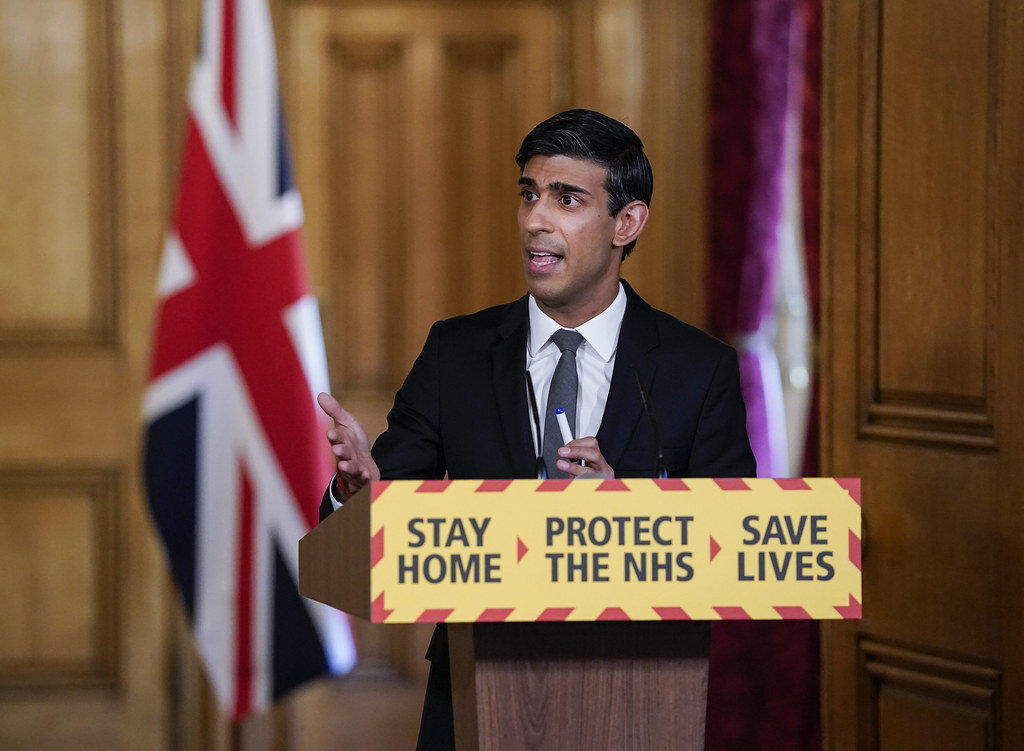Post-pandemic economic policy: where next?
Owen Groves argues that the Covid-19 pandemic offers a unique opportunity for economic change, to address persisting inequalities in the UK.
As the UK continues to suffer one of its greatest crises of the post-war period and with the coronavirus death toll above 40,000 , the government has announced a steadfast but modest lifting of certain lockdown measures in social life, sport, and industry. Whilst we begin to adjust to life-after-COVID, there are plenty of questions remaining. With the worst economic forecast in 300 years and unemployment expected to skyrocket to near 10%, huge challenges lie ahead. So what commitments should we be expecting from the incumbent prime minister and chancellor in-tow, and are they likely to fill the gaping holes inflicted by 2020’s apparently never-ending obstacles?
The requirement of fiscal stimulus has possibly never been greater, and for the most part, chancellor Rishi Sunak has been intent on rising to the challenge in the form of the furlough scheme. Of course, this is not without constraint, and after leaks last month suggesting a 20% cut to its coverage was around the corner, the population have a right to be worried. The decade following our last great shock – the 2008 financial crisis – has been rife with slow growth, stagnant wages, and mundane public policy to match; now there must be a markedly different line of approach from the austerity politics of David Cameron, and the incredibly dreary legacy he left behind.
Although it is clear that this supposed new-era Conservative government doesn’t appear to be as hell-bent on austerity as the last, the scale to which fiscal policy will be implemented is still the elephant in the room, after the Tory party rubbished the spending plans of the labour party back in December. Coronavirus does, however, present a unique challenge; and so a unique response is required, regardless of previous reservations regarding manifesto pledges. Interest rates on government borrowing are at historic lows, so there really has been no greater time to loosen the public purse strings and provide support to both businesses and households. Voices from both sides of the political spectrum are warming to the idea of greater government deficits in the short term, and if the last few months are anything to go by, this change will come as no surprise.
The debate as to where these funds end up is more of a contentious one, as both the public and private sector have struggled under the pressure of the pandemic. There’s every chance previously profitable endeavours will not return, which might provide a unique opportunity for restructuring our economy.
There is increasing appetite for environmentalist economic policy to be at the forefront of Britain’s break from the shackles of recession. Last week, the Institute for Public Policy Research furthered their argument for a green recovery, making the case for large public infrastructure spending to tackle the gaps in employment and growth. Not only does climate-friendly investment generate jobs and fill the pockets of consumers, but with the global order turning its attention away from fossil fuels and towards renewables, there certainly is impetus for Britain to be leading the pack and setting its stall out for a green industrial revolution in the next half-century and beyond.
The gains from any possible recovery – whether such recovery is environmentally driven or not – must be shared. In a country where homelessness is over a quarter-million and food banks are a fixture in nearly every city, it seems right that with economic recovery we should hope to see social prosperity emerge, with welfare gains similar to those experienced after World War II. There have been calls in the Telegraph for “pro-market” investment, albeit sustainably, but we mustn’t allow big corporations to take centre stage whilst working people and independent business are shunned. The gap between rich and poor in the western world has grown extensively over a 40-year period of huge financialization, indebtedness, and championing of the private sector; and with public support for policies such as universal basic income and job guarantee schemes overwhelmingly positive, large swathes of the population appear to be intent on ensuring the next stage of economic growth in Britain isn’t at anyone’s expense.
The post-COVID landscape is thick with challenges and uncertainty; and for the most part, people seem to have wised-up to the value of our brilliant healthcare system and key workers. A country obsessed with the financial sector and big business is undoubtedly one that has left others behind in the past, which has become all too apparent in the last few months. Beyond the immediate need for PPE supply and pay-rises in the NHS, there is a much bigger question as to how economic prosperity is realised, and who it will benefit once we are out of the clutches of this global pandemic. No doubt the chancellor and treasury will be working hard to ensure life returns back to normal, but perhaps a new normal should be on the agenda.
Pi Opinion content does not necessarily reflect the views of the editorial team, Pi Media society, Students’ Union UCL or University College London. We aim to publish opinions from across the student body — if you read anything you would like to respond to, get in touch via email.

